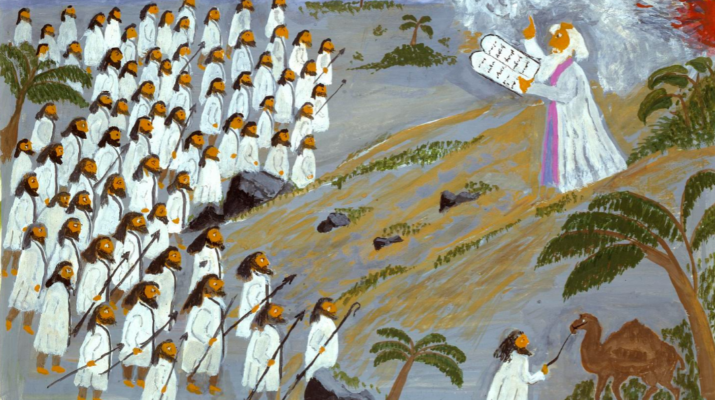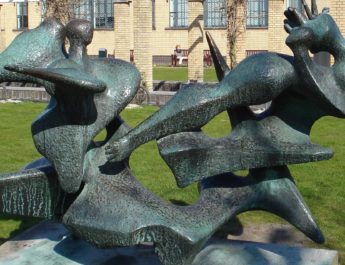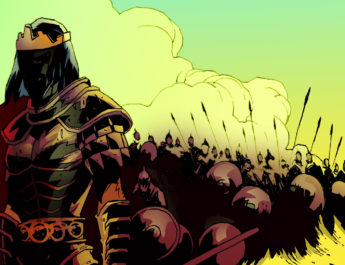Deuteronomy 29:10-15
A Women’s Lectionary 27
10 “You stand assembledA today,B allC of you, beforeD the LordE your GodF—
A “stand assembled” = natsab. This is to station, appoint, establish, take a stand.
B “today” = yom. Root may mean being hot. This is the day in a literal or figurative sense. It can also mean birth, age, daylight, continually or other references to time.
C “all” = kol. From kalal (to complete). This is all or every.
D “before” = paneh. From panah (to turn, face, appear). This is face in a literal or figurative sense. It could be face, presence, anger, respect. It can also be used of God to indicate divine favor or presence.
E “Lord” = YHVH. From havah (to be, become) or hayah (to come to pass, become, be). This is the name of the God of Israel, the self-existent and eternal one, the tetragrammaton. This pronunciation has been lost to time so “Lord” is generally used in its place.
F “God” = Elohim.
the leadersG of your tribes,H your elders,I and your officials,J all the menK of Israel,L
G “leaders” = rosh. This may come a word that means to shake. It is the head, captain, or chief. It can also be excellent or the forefront. It can be first in position or in statue or in time (i.e. the beginning).
H “tribes” = shebet. This is a rod, staff, club, scepter, dart, or tribe. Literally a stick that can be used for punishing, writing, fighting, walking, ruling; thus, used figuratively for a clan.
I “elders” = zaqen. From the same as zaqan (beard or chin – the beard represents old age). This is old, aged, or elder.
J “officials” = shoter. The root may mean write. This is perhaps originally a scribe and so it was used more broadly for an official, officer, ruler, overseer, or magistrate.
K “men” = ish. Perhaps from enosh (human, humankind, mortal); from anash (to be weak, sick, or frail). This is man, husband, another, or humankind.
L “Israel” = Yisrael. Related to “God” in v10. From sarah (to persist, exert oneself, contend, persevere, wrestle, prevail) + el (see note F above). This is Israel, meaning God strives or one who strives with God; new name for Jacob and for his offspring. This refers to the people and to the land.
11 your children,M your women,N and the aliensO who are inP your camp,Q
M “children” = taph. From taphaph (walking along with small, tripping steps like children do). This is little ones, children, families.
N “women” = ishshah. Related to “man” in v10. From ish (see note K above). This is woman, wife, or female.
O “aliens” = ger. From gur (to abide or sojourn; to leave the road to lodge or for any other reason). This is sojourner, guest, stranger, foreigner.
P “in” = qereb. Perhaps from qarab (to come near or approach). This is among, in the midst, before, the center It is the inward part, whether literal or figurative. It can also be used for the heart, the site of thoughts and feelings. This word is also used as a technical term for the entrails of the animals who are sacrificed.
Q “camp” = machaneh. From chanah (to decline, bending down, or living in tents; can be camping to create a home or camping as a part of battle). This is an encampment, whether of people traveling together or soldiers. So, it can be a camp band, or company as well as an army of soldiers. Also can be used of other groups like animals, angels or stars.
both those who cutR your woodS and those who draw your waterT— 12 to enterU into the covenantV of the Lord your God,
R “cut” = chatab. 9x in OT. This is to chop wood, a woodcutter, to polish or carve wood.
S “wood” = ets. Perhaps from atsah (to shut, fasten, firm up, to close one’s eyes). This is tree or other things related to trees like wood, sticks, or stalks. It can also refer to wood products like a plank or staff or gallows. Additionally, this can refer to a carpenter.
T “water” = mayim. This is water, waters, or waterway in a general sense. Figuratively, it can also mean juice, urine, or semen.
U “enter” = abar. This is to pass over or cross over. It is used for transitions, whether literal or figurative. It can also mean to escape, alienate, or fail. This is the root verb from which “Hebrew” is drawn.
V “covenant” = berit. Perhaps from barah (to eat, choose, make clear); perhaps from bar (grain, wheat); from bara (to select, purify, cleanse, test, brighten, polish). This is a compact, covenant, alliance, treaty, or league.
sworn by an oath,W which the Lord your God is makingX with you today, 13 in order that he may establishY you today as his peopleZ and that he may beAA your God,
W “oath” = alah. From alah (to swear, take an oath, curse – usually negative). This is oath, curse, swearing.
X “making” = karat. This is to cut down, cut off, or make a covenant (idiom for making a covenant is “to cut a covenant”). It can also mean to destroy, fail, or consume.
Y “establish” = qum. To arise, stand, accomplish, establish, abide. This is rising as in rising against, getting up after being sick or asleep, arising from one state to another, becoming powerful, or rising for action. It can also be standing in a figurative sense.
Z “people” = am. From amam (to darken, hide, associate; creating shadows by huddling together). This is people or nation. It can be used specifically for a tribe, collectively of troops or armies, or figuratively to refer to a flock of animals.
AA “be” = hayah. Related to “Lord” in v10. See note E above.
as he promisedBB you and as he sworeCC to your ancestors,DD to Abraham,EE to Isaac,FF
BB “promised” = dabar. This is generally to speak, answer, declare, or command. It might mean to arrange and so to speak in a figurative sense as arranging words.
CC “swore” = shaba. Perhaps from sheba (seven – the number of perfection/sacred fullness). This is to swear, curse, vow, make a covenant. Properly, it can mean to be complete. This is to seven oneself – as in affirming something so strongly it is as though it were said seven times.
DD “ancestors” = ab. This is father, chief, or ancestor. It is father in a literal or figurative sense.
EE “Abraham” = Abraham. Related to “ancestors” in v13. From the same as Abiram (exalted father, a high father – lofty) {from ab (see note DD above) + rum (rise, bring up, being high, extol, exalt, haughty; to raise in a literal or figurative sense)}. This is Abraham, father of many nations or father of a multitude.
FF “Isaac” = Yitschaq. From tsachaq (to laugh, mock, play, make sport; this is laughing out loud whether in joy or in a scornful way). This is Isaac, meaning “he laughs.”
and to Jacob.GG 14 I am making this covenant, sworn by an oath, not onlyHH with you 15 who standII here with us today beforeJJ the Lord our God but also with those who are not here with us today.
GG “Jacob” = Yaaqob. From the same as aqeb (heel, hind part, hoof, rear guard of an army, one who lies in wait, usurper). This is Isaac’s son and his descendants. The name means heel-catcher or supplanter.
HH “only” = bad. From badad (to divide or be separated; alone, solitary, lonely, isolated, straggler). This is apart, alone, separation, body part, tree branch, except. It can also be a city’s chief.
II “stand” = amad. This is to stand up in a literal or figurative sense. So it can be establish, continue, endure, take a stand, act, be a servant, stand still, remain, stand against an enemy.
JJ “before” = paneh. Same as “before” in v10. See note D above.
Image credit: “Moses Delivering his Ten Commandments” by David Coulander, ca. 1950s.




